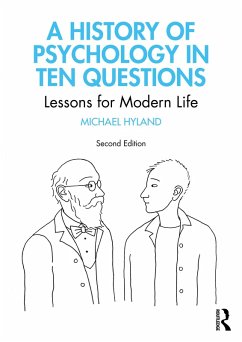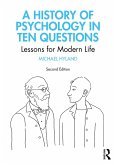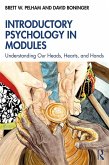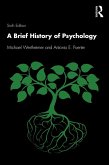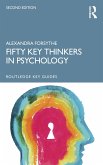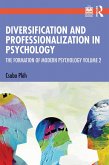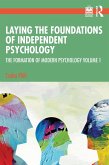How do you know if something is true? How do you explain and control behaviour? What is the relation between psychology and physiology? How will artificial intelligence affect humanity? This book answers these and other questions by covering a wide range of topics in psychology, including neuroscience, personality, behaviourism, cognitive and humanistic psychology, qualitative methodology, inheritance and hermeneutics, all brought up to date with recent research. Drawing on the author's own teaching, the book is structured around ten key questions where the history of psychology provides insight into modern life. Accessible for all readers, each chapter is also equipped with a 'Lesson for modern life' and nine 'Essays and discussion topics' so that readers can apply these ideas to their own thought practice. These provide interesting topics for discussion around issues that affect life and society.
This insightful text encourages readers to question their own lives and the wider society by providing an engaging introduction to debates in history and contemporary society. The book is also the ideal resource for undergraduate students of psychology taking CHIPS and other history of psychology modules, as well as anyone generally interested in learning more about this fascinating subject.
This text also has its own Instructors Resources, which includes Multiple Choice Questions, Student Slides and Lecture Slides. These will be available from Routledge's Instructors Hub, once the book has published.
Dieser Download kann aus rechtlichen Gründen nur mit Rechnungsadresse in A, B, BG, CY, CZ, D, DK, EW, E, FIN, F, GR, HR, H, IRL, I, LT, L, LR, M, NL, PL, P, R, S, SLO, SK ausgeliefert werden.
René van Hezewijk, Emeritus Professor of Psychology of the Open University of the Netherlands
'A History of Psychology in Ten Questions is an inspired way of covering crucial questions in the history of the discipline. Students often come away from a foundational history course with a confusing hodge-podge of facts and names, but Michael Hyland instead engages the reader by examining the key questions that constitute this fascinating journey from philosophy to science. Without eschewing psychology's major challenges, this volume will enlighten as well as delight those trying to understand the sprawling field that the discipline has become.'
Henderikus Stam, Professor Emeritus, University of Calgary, USA
'Having taught history and systems of psychology for many years, I can say that this is the best book on the subject that I have ever read. Besides being eye-opening and informative, it is reader friendly and exceptionally entertaining, including some very clever cartoons illustrating points made in the text. Were I to once again to teach a course on the history of psychology and the philosophy of science, this is certainly the textbook I would choose.'
Irving Kirsch, PhD, Harvard Medical School, USA

